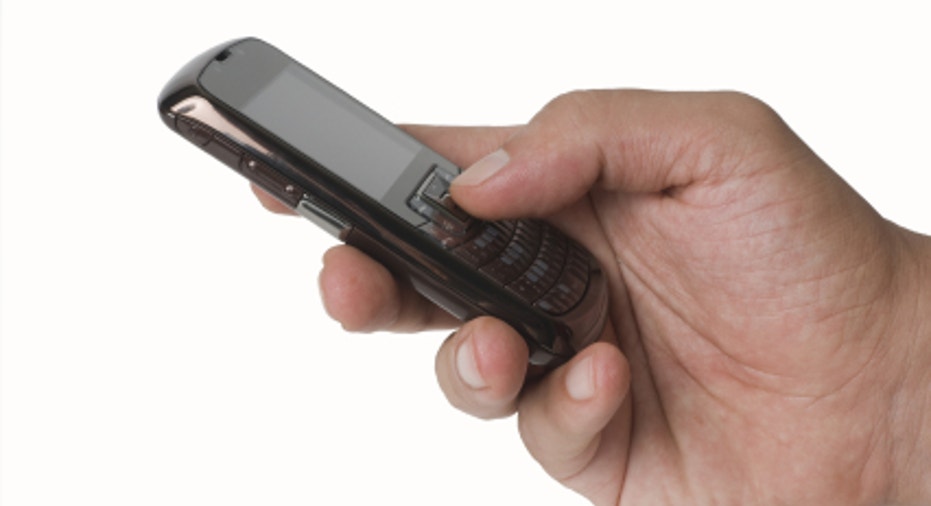5 Phone Scams Target Retirees

If you're retired, one of the biggest threats to your wallet could be that smooth voice on the phone.
Reported phone scams were up 7.62% in 2010, according to the National Consumers League.
With all age groups, phone scams are growing. And so are consumer complaints. With retirees, scammers give more time and attention. Often, when the family members finally intervene, the retiree has more trust in the new phone friend.
Recently, one crook gamed $25,000 from a retiree in a lottery phone scam, says Linda Foley, founder of the Identity Theft Resource Center. Even when relatives assured the man the "lottery" was fake, he insisted he'd won -- selling off assets to pay fees "required" to claim his promised millions.
"It was heartbreaking," says Foley.
Criminals also watch the news. They "latch onto what's new and at the top of consumers' minds," says John Breyault, director of the National Consumers League's Fraud Center.
Consequently, top scams these days revolve around health care reform, he says.
Beware these five tricky retiree phone scams.
'So-called' Discount Health Plans
Another scheme with a news hook: unsolicited phone calls or visits from hucksters selling fake discount health plans.
The caller claims to be with the government or a government-sponsored company and tries to sell you a "health plan" that will provide discounts on various medical services, says Breyault.
These plans rarely offer any worthwhile coverage, he says.
Signs that it's a scam:
*The caller won't give you details in writing. (And don't even ask unless you have access to a fax machine or a P.O. box. You don't want to give these people your home address.)
*The caller asserts he or she is with the government or a government-sponsored company.
*You're told you must have insurance now. But mandatory health coverage requirements don't go into effect until 2014.
Best move: hang up.
If you want different coverage, Bankrate.com offers insurance quotes. You can also search Medicare by ZIP code and see which plans are available in your area. Or you can find an agent for supplemental and drug plans through the National Association of Health Underwriters.
Hello, Grandma!
You get a phone call from a "friend" of your grandson. Bad news. Your grandson is in jail. He's too embarrassed to call his parents. Could you wire the bail-lawyer money? And please don't tell anyone.
One big tip-off: the request to wire money. "Scammers are very frequently users of money services," says Breyault.
Any time a stranger on the phone asks you to wire money, it's a con. And sometimes, even when someone claims to be family, that can also be a scam.
Still worried? Hang up and dial your grandson, says Breyault. Chances are his cell is glued to his hip, and you'll discover he's not in jail.
Or ask the caller the name of the location and the jail. Then hang up, and look up the number to that jail yourself. If you find out it's a real place, call to see if your little darling is there. Most likely, he won't be.
Lottery Scam
A caller gushes that you've won millions. But first you must pay taxes and transfer fees. He or she might request personal information, such as Social Security or bank account numbers. And your caller may make multiple calls to establish a personal rapport, says Foley.
Scam clues:
*You don't recall buying a ticket.
*Real lotteries don't track down winners. They won't call at all, much less repeatedly.
*Real lotteries don't ask you for money.
*Lotteries don't need your banking information.
*In reality, you deal with the tax authorities yourself -- after you collect.
A twist: The caller may tell you the money will be awarded to someone else if you don't pay quickly.
Real lotteries don't regift.
And how would anyone know you hold the "winning" ticket?
The Sweepstakes Con
Scammers will blur the lines on sweepstakes and lotteries, hoping you don't know the difference.
But while sweepstakes or contest sponsors will contact you (the opposite of how a lottery works), all the other scam tip-offs are the same. You have to proactively enter. There are no random drawings based on your phone number, address, e-mail address or purchase records. You never have to pay out money if you've won a genuine contest. You also don't have to share banking information. And you settle with tax authorities yourself, after you've been paid.
One big tip-off: secrecy. If someone wants you to part with money and keep that fact a secret, it's a scam, says Jenny Shearer, spokeswoman for the FBI.
The whole purpose of sponsoring a sweepstakes is to generate publicity, so why would a real sweepstakes ask you not to tell anyone you've won?
Investment Scams
You receive a phone invitation to a free lunch seminar. Or the invitation could be for a weekend getaway or even a cruise. It could arrive in the mail.
If what's being hyped is labeled as an investment opportunity, it's frequently "a bogus investment," says Breyault. These so-called opportunities are often Ponzi schemes.
"Scammers buy phone lists," Breyault says.
Scam signs:
*Promises unbelievable returns but puts none of that in writing.
*Pressures you to make a decision on the spot. "If it's a good investment today, it will be a good investment the next day," says Breyault.
*Claims sponsorship or endorsement by organizations or agencies that don't endorse or sponsor investments.
*May claim to be registered or licensed when they really are not.
Tip: Never make investment decisions immediately. And vet all professionals and potential investments, Breyault says. Do background checks.
And skip the freebies. Like your mama always told you: There's no such thing as a free lunch.



















